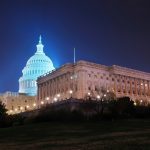According to former CIA advisor and global financial strategist Jim Rickards, one of the most consequential laws in American history has never been repealed, rewritten—or used.
That may be about to change.
Rickards says a forgotten piece of federal legal code—first introduced during the 42nd Congress following the Civil War—may soon be revived, thanks to a Supreme Court decision in 2024 that rebalanced the regulatory power of U.S. agencies.
“It’s still on the books,” Rickards says. “But for more than a century, it’s been locked behind red tape. Until now.”
A Law That Was Never Rescinded—Just Restricted
The legal section in question resides within Title 30 of the U.S. Code. Originally designed to manage the growth and use of America’s vast public lands, the policy was quietly shelved—trapped under modern regulatory barriers and agency discretion.
“You can go read the sections—22 to 42 to be exact,” Rickards explains. “It’s pretty dry stuff. But the implications are massive.”
“No one ever deleted the mechanism. They just stopped letting anyone use it.”
Rickards believes this overlooked policy may represent one of the most significant untapped opportunities in modern U.S. history.
The Chevron Doctrine Comes Down — and the Locks May Come Off
In 2024, the Supreme Court overturned the Chevron Doctrine—a decades-old precedent that gave federal agencies wide authority to interpret laws without court oversight. Rickards says this decision effectively disables the firewall that had restricted access to this 19th-century legal pathway.
“Trump’s Supreme Court overturned the Chevron Doctrine,” Rickards says. “It essentially gave so-called government experts ‘kill shot’ power. But that’s over now.”
“Now… for the first time in half a century – we can go get [these resources]!”
What This Law Actually Unlocks
The statute, Rickards explains, doesn’t control financial assets or currency—it governs what lies beneath the surface of federally controlled U.S. land. Copper, lithium, silver, and other high-demand materials are embedded across the western U.S., sitting idle under legal structures never fully implemented.
“We have all these essential materials right under our feet,” Rickards says. “And yet, we’re the only nation that locks them up.”





